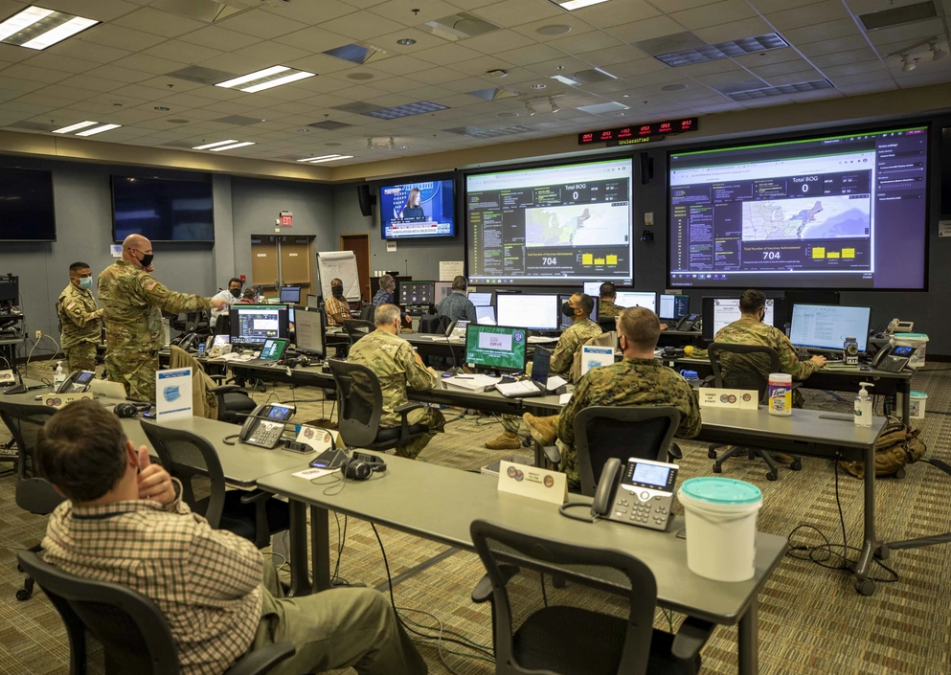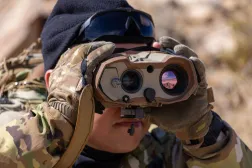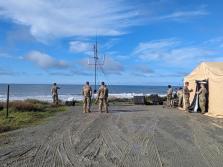Lawmakers want to keep a closer eye on Pentagon’s JADC2 pursuits

Both chambers of Congress are considering legislation that would mandate new reports and mechanisms to enable lawmakers to more deeply monitor how the Pentagon is progressing on its multibillion dollar initiative to connect all of its sensors and systems across the entire battlespace under a single network.
Sen. Joni Ernst, R-Iowa, and Rep. Darrell Issa, R-Calif., recently introduced the Joint All-Domain Command and Control (JADC2) Implementation Act, which was referred to the Senate and House Armed Services Committees.
Broadly, this new, eight-page legislative proposal outlines many activities that were previously assigned to — and are currently being pursued by — Department of Defense components.
“These are expectations that were already expected of the DOD from previous [National Defense Authorization Acts], but this bill will help outline a definitive plan so that Congress can track their progress — because this program has a very large budget,” a Senate staffer told DefenseScoop on Tuesday on background.
At this point, the anticipated cost for DOD to carry out its ambitious JADC2 concept in the next decade is slated to be more than $9 billion. The department’s components have been operating under an overarching JADC2 strategy and classified implementation plan since early 2022.
However, Congress members and government oversight officials have warned in recent months about apparent interoperability gaps and implementation challenges that could hinder the Pentagon’s attempts to fully realize JADC2.
The newly proposed JADC2 Implementation Act is meant to “more definitively outline the authorities that stakeholders in this program have,” according to the staffer, “to include appointments of highly qualified experts and the authority to enter contracts to acquire goods and services.”
If passed, it would require the secretary of defense to establish specific roles and responsibilities for DOD components to ensure they ultimately develop and deliver “capabilities that are essential to integrated joint warfighting” to the combatant commands.
Notably, the bill text states that the Pentagon elements would prioritize the requirements of U.S. Indo-Pacific Command in all this work. That combatant command is responsible for defending and promoting America’s interests in the Pacific Ocean and Asia, where tensions are high between the U.S. and China.
DefenseScoop recently reported that the command is set to play a more significant role in the Pentagon’s Global Information Dominance Experiments (GIDE), which are essentially being designed to prove out emerging technologies needed to enable the military’s vision for JADC2.
The new bill from Ernst and Issa would “require the DOD to submit reports to congressional defense committees that will lay out a plan and a timeline for the deployment of a joint data integration layer prototype (JADC2) for INDOPACOM to include scaling, capabilities, personnel, and how to grow it,” the staffer told DefenseScoop.
Among other inclusions, this legislation spotlights explicit responsibilities for the Pentagon’s Chief Digital and AI Office.
“No matter the service branch, commanders should have access to critical capabilities to best equip our warfighters and better coordinate our military’s efforts across air, land, sea, space, and cyber. Through the Joint All-Domain Command and Control Implementation Act, I’m working with Congressman Issa to further integrate our joint forces and give commanders better access to the tools they need to achieve their mission,” Ernst said in a statement.






